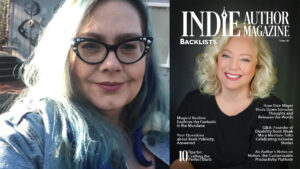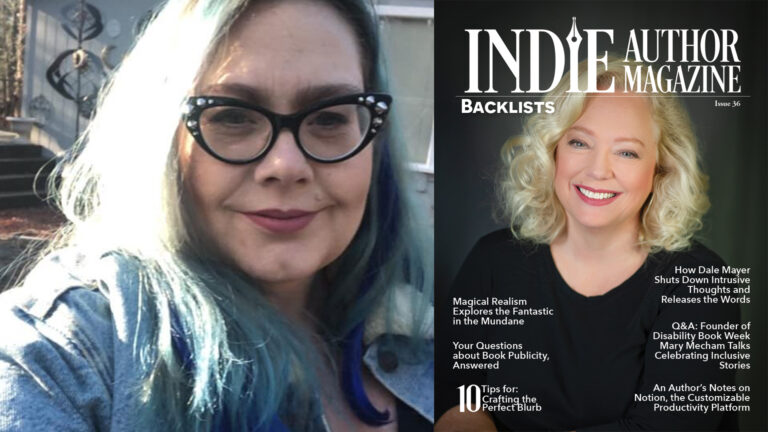Q. When did you realize you wanted to be a writer?
A.I’ve always been drawn to writing. I composed many, an ill-formed epic fantasy as a child. It seems the impulse to compose epic stories, though hopefully not so ill-formed, hasn’t changed. I’m a verbal person and a yapper, and I think that’s to blame. So, after I fatigue all of my could-be audiences, writing provides my brain with the hamster wheel that it needs to run until it flags. I decided to compose a fantasy series coincident with thousands of other new authors, all of us trapped in our abodes and held ransom by COVID19.
I’ve always intended to write a fantasy novel, well a trilogy. Twas’ on the bucket list for my forties. But as I built out the problems facing the characters in this series, I decided that a pentalogy was in order. So, I’ve spent the last 2.5 years and about 4500 hours toiling away in the corners of coffee shops, bars (I never claimed to be sinless…), and on hiking trails in service to the task. It has been more isolating than I supposed at the start, but that’s made me even more excited to share this story with the world.
Q.Why did you decide on this story to tell?
A.This story would have spawned from my pen (or, realistically, my cursor) whether I willed it or not. I adore fantasy, but I adore the intrigues, manipulations, and deceits between characters even more. I don’t think I’m alone either. When penning these books, I reminded myself over and over of the moments and characters in fantasy that thrilled me most. Then I worked to populate my pages with that fare.
As a bycatch, I found myself writing descriptions of real places, things, and kinds of people that I’ve known, but I turned them inside out or hypertrophied them to the nth degree. This means that many settings in the story are echoes of the real world, but aspects of it that few know. So, while it did not serve as the original motivation for the books, social commentary and reflection became part of the recipe.
Q.What would you say is the most interesting quirk of your book?
A.Oh boy. I imbued this series with a lot of quirks. The principle among them, I think, is that I turn many fantasy tropes on their ears. I jab at the lovable country bumpkins that always seem to fall backward into fame in fantasy. I likewise wink at the chosen-one-ness that seems to lift empty vessels into cosmic interest.
Instead, I give screentime (or is it page time?) to characters with traits that don’t often receive center stage in fantasy, and I ensure that it’s cleverness and strategy that save the day, and not unearned magic. Time and again, I’ll try to siren’s call my readers into anticipating one outcome and then blindsiding them with another.
Oh, and the series features evil breeds of giant cats. What’s not to love about that?
Q.Where do you get your ideas for your book?
A.Anywhere and everywhere. I read a variety of authors before delving beneath the waves to excavate my own tales. Tolkien, Jemisin, Jordan, Sanderson, Maas, Butcher, Rowling, Mieville, Rothfuss, and on received fresh airings. I also allowed my experiences in academia to fuel twisted and malevolent scholar characters, all prone to political infighting.
Apart from that, I’m also always on the lookout for fun witticisms to slip into my dialogue. It’s odd, but whether it’s A Song of Ice and Fire, Bridgerton, or Downton Abbey, it’s always the barbs that characters throw at one another that are the most indelible moments for me. I find myself longing for Cercei and the Queen of Thorns to take just a few more jabs at each other before we cut away… So, I endeavored to ensure plenty of jabs on my pages. Thankfully, I’ve got quite a retinue of well-barbed friends from which to acquire inspiration.
Q.As a child, did you want to be a writer?
A.I’ve loved telling stories of every kind since childhood. Sometimes that included writing. Though, as often as not, storytelling took on other media. For instance, I directed many elaborate love triangles between my stuffed animals and Lego sets. In fact, I was more comfortable composing romance story arcs at ten than I am now at thirty-seven… Hmm…
Anyhow, I also participated in community theater as a child. So, my penchant for theatrics enjoyed plenty of outlets. That theatricality hasn’t ebbed, though I take a subtler tone in this series.
Q.What part of the book was the most fun to write?
A.The villains, of course. I like oozingly unctuous, disingenuous villains that leap from the page and leave a greasy film on the reader. Give those villains an evil cat to stroke while they’re at it and I’m in writer’s heaven. When the evil dialogue is right and the tone is set, I find myself vanishing into the book and coming up for air many pages later. By contrast, I find it challenging to navigate protracted action without some witty dialogue to keep me engaged. The same is true when I read. I find dialogue draws me in more than prolonged narratives about gowns or how buttery the capon looks. I basically tried to write the fantasy series of my fantasies. I hope others will enjoy the same.
Q.What is the most valuable lesson from your book for readers?
A.I try to show how good ideas can still take us to dangerous places. Many characters in my books work by principles that make excellent sense… on paper. My world is run by institutions that work via theoretical grounds that are sound, and yet they still manage to perform great evils. Some characters execute these evils by chance. Others deliberately leverage the power of ideas and the guise of good sense to inflict harm for their own gain. So much of the evil in this series is accepted because the grounds for it all appear sound, and because humans suffer an aptitude for acclimatizing to almost anything, given time. I hope that what my characters take for granted will strike readers as an afront.
Q.How did you develop your plot and characters?
A.For the plot, I write with a sense of how things will start, end, and a few key moments along the way. I know the landmarks at the get go, but how to navigate between them is a mystery. I write specific scenes with goals in mind too, but the particulars often get worked out as I go. More than once I’ve found myself tangled up in plot knots navigating between waypoints. When I do, I don’t allow myself to invent new characters, or magic, or beasts to solve the issue. The characters must figure things out, and so must I. No last-minute McGuffins to save us.
As for characters, I amalgamate combinations of personality traits and histories to allow each character to be distinct and to provide a unique perspective. They also need to play off of one another in a manner that both intrigues and propels the storyline forward. So, there’s a bit of niche partitioning between my major characters, and then I try to make them lovable and flawed. I can’t handle reading or writing unblemished characters for long. They just leave me feeling self-conscious. So, it’s antiheroes en masse for the win in my tales.
Q.Which of your characters do you relate to most and why?
A.I’d say I relate to all of my characters equally, but only to their flaws. Chesa’s quick temper, Ms. Ash’s dismissiveness, Peony’s naivete, Tara’s haughtiness, and Roland’s self-consciousness are all traits I see in myself. I relate to real people in much the same way. I’m quick to show my foibles and admit my faults, in part because I want to give others freedom to lower their shields too. I can’t feel close to a person nor a character without that kind of honest vulnerability. Mary Sue characters who put on unblemished airs strike me as walking, talking lies and tedious wish fulfillment. Only honest, realistic characters need apply here.
Q.Are any of your characters based on people from your life?
A.Hmm… a little here and there. Tara’s strained and expectant relationship with her mother, for instance, has glimmers of the relationship I enjoyed with my own. Peony’s excitement to strike out on her own path resembles the start of many of my friends’ adult lives. Roland’s tendency to internalize the suffering of others echoes the sentiments of social workers and nurses in my circles. The notorious scholar classes in this series are all exaggerations of archetypes I’ve known personally, though none of them are based on any one individual or another.
In truth, I endeavored to put an emotional moat between myself and the cast, in part to protect myself, and in part because I hesitate to offend anyone. Whether that’s cowardice or healthy is up to you to decide. Maybe both?
Q.What kind of research was needed to write your book?
A.For starters, I read a great deal. I tried to read or reread everything from celebrated children’s classics to grimdark fantasy, to steamy fairy romance novels. I read with the goal of preventing myself from emulating anyone too closely, while also allowing myself to be broadly inspired. I enjoyed my time swimming about in the words of others. Though, in the end, I think a distinctive voice of my own emerged and would have regardless.
Q.What was the hardest scene to write and why?
A.Oh, the final showdown sequences nearing the end of the book all proved to be perennial pebbles in my shoe. I knew that I wanted a crescendo-ing try-fail sequence near the book’s finale, where the stakes of the battles became larger and larger. But the first drafts of each of these chapters ended up being thousands and thousands of words, and accounting for each character turned into a writing-hydra. Not good. In the end, the solution to most ailments was editing. Lots and lots of editing and culling. Each sentence received more than one strip-searches to remove redundancies. The remedy for most ugly Christmas trees is editing too – remove the superfluous ornaments and the look will snap together. If you keep the pen strokes lean, then the theater of the mind will find traction. That’s my philosophy.
Q.What inspired the title for your book?
A.Gosh. The title of the book changed a lot over the course of this project. I first tried to scheme up a title that captured the book’s grimdark flavor, but that led me to titles that just sounded… well, depressing. And who really wants to open a book that threatens to leave you whimpering? So, then I polled my beta readers and friends for ideas. That produced a diversity of titles, but none of those appealed either. In the end, I decided to title the first book after its primary setting, The Amber Menhir.
Social Media:To find out more about Jonathan Pruitt go to his Instagram and Facebook








